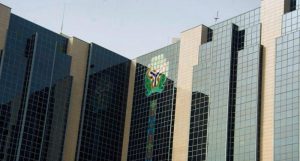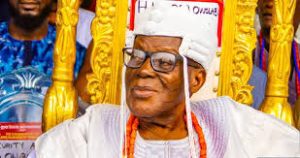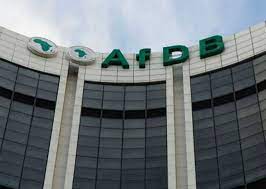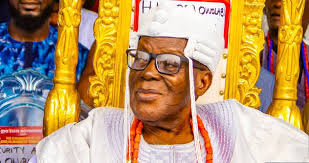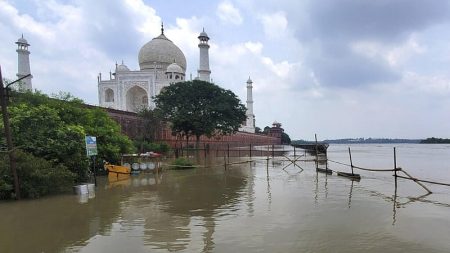The Crumbling Edifice of Nigerian Academia and the Ensuing Brain Drain
Nigeria, a nation grappling with numerous developmental challenges, is facing a critical crisis in its knowledge ecosystem, manifested in the decay of its once-renowned universities and research institutions, and a debilitating “brain drain” that sees its brightest minds seeking greener pastures abroad. This intellectual hemorrhage, fueled by inadequate funding, dilapidated infrastructure, and a lack of strategic direction, threatens to cripple the nation’s future prospects and perpetuate its dependence on raw material exports. Professor Banji Oyelaran-Oyeyinka, Senior Special Adviser to the African Development Bank President on Industrialisation, has voiced grave concerns about this alarming trend, highlighting the urgent need for comprehensive reforms to salvage the country’s intellectual capital and steer it towards a path of sustainable development.
Oyelaran-Oyeyinka paints a bleak picture of Nigeria’s academic landscape, using the Obafemi Awolowo University (OAU), formerly a flagship institution and a beacon of intellectual pursuit, as a poignant example of the pervasive decline. Once a magnet attracting the brightest minds from across the continent, OAU, like many other Nigerian universities, now struggles with crumbling infrastructure, underfunded departments, and a mass exodus of highly skilled professionals, particularly engineers and technical experts. This distressing situation, he argues, is a microcosm of the broader national tragedy unfolding in the education and research sectors, a tragedy fueled by years of neglect and a lack of visionary leadership.
The consequences of this intellectual erosion are far-reaching and potentially devastating. Thousands of engineers and other technical experts, educated with public funds, are now contributing their expertise to foreign economies, bolstering their industries and innovation ecosystems while Nigeria’s own industrial sector remains underdeveloped and directionless. This exodus of talent represents a significant loss of human capital and a missed opportunity for Nigeria to leverage its intellectual resources for economic transformation. The irony is stark: Nigeria invests in educating its brightest minds, only to see them depart and contribute to the prosperity of other nations.
This “brain drain,” Oyelaran-Oyeyinka argues, is a direct consequence of Nigeria’s failure to prioritize education, research, and industrial policy. The disconnect between knowledge production and national development goals has created a vicious cycle of underdevelopment. The lack of a coherent strategy linking academic research with industrial needs means that the country’s knowledge infrastructure remains poorly funded, disorganised, and largely irrelevant to the challenges facing Nigerian industries. This stands in stark contrast to the experiences of many Asian countries that have successfully leveraged science and technology as the foundation for their remarkable industrial transformation.
The situation in Nigeria, Oyelaran-Oyeyinka warns, constitutes a “real resource curse,” where the absence of institutionalised knowledge and innovation poses a greater threat to the country’s future than its overreliance on raw material exports. This “knowledge deficit” undermines the nation’s ability to diversify its economy, create high-value jobs, and compete effectively in the global marketplace. The continued dependence on raw materials leaves Nigeria vulnerable to fluctuations in global commodity prices and perpetuates a cycle of economic instability.
The path to reversing this troubling trend, according to Oyelaran-Oyeyinka, requires urgent and comprehensive intervention. Rebuilding the nation’s universities, modernising research systems, and aligning knowledge production with national development goals are crucial steps towards stemming the brain drain and fostering a knowledge-based economy. This necessitates increased investment in education and research, the creation of an enabling environment for innovation, and the establishment of strong linkages between academia and industry. Furthermore, attracting and retaining top talent requires competitive salaries, improved working conditions, and opportunities for professional growth and development. Only by addressing these fundamental challenges can Nigeria hope to harness its intellectual potential and unlock its vast developmental potential.
Oyelaran-Oyeyinka’s call to action is a stark reminder of the urgency and magnitude of the task at hand. Rebuilding Nigeria’s knowledge infrastructure is not merely about bricks and mortar; it is about fostering a culture of intellectual inquiry, innovation, and entrepreneurship. It is about investing in the future of the nation and empowering its citizens to contribute meaningfully to its development. The challenge is formidable, but the stakes are too high to ignore. Nigeria must choose between continuing down a path of intellectual decline and economic stagnation or embarking on a transformative journey towards a knowledge-based economy driven by innovation and powered by its own human capital. The choice, as Oyelaran-Oyeyinka eloquently puts it, is between being the generation that watched the nation crumble and the generation that stood up and said, “Let us rebuild the wall.”


